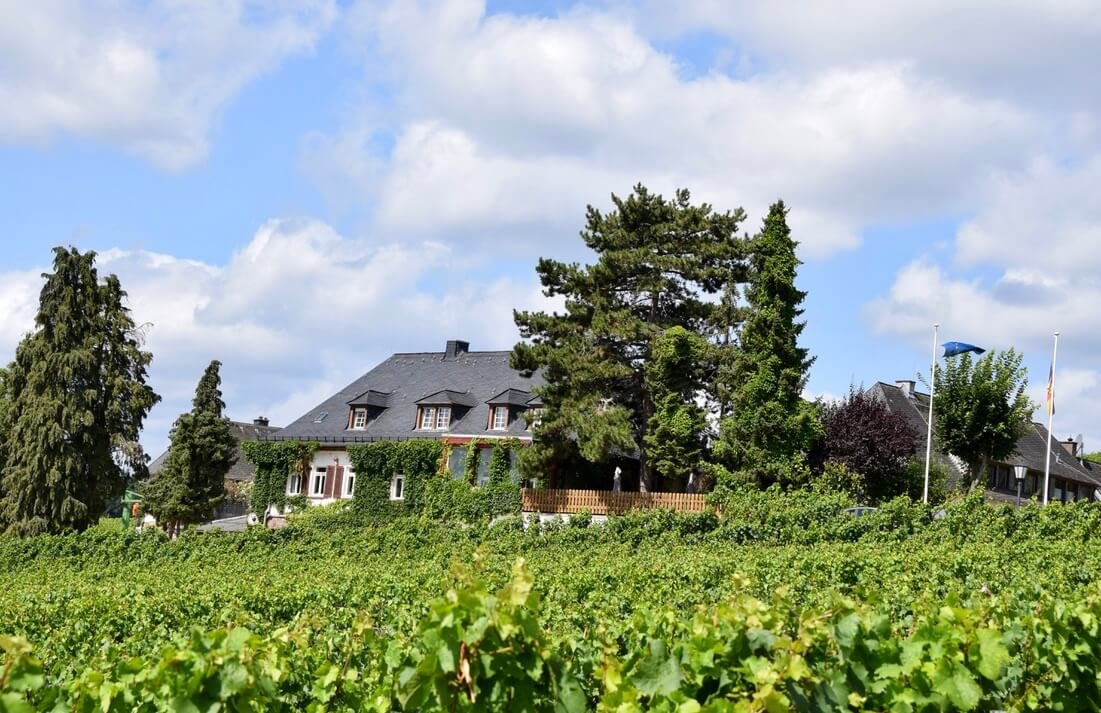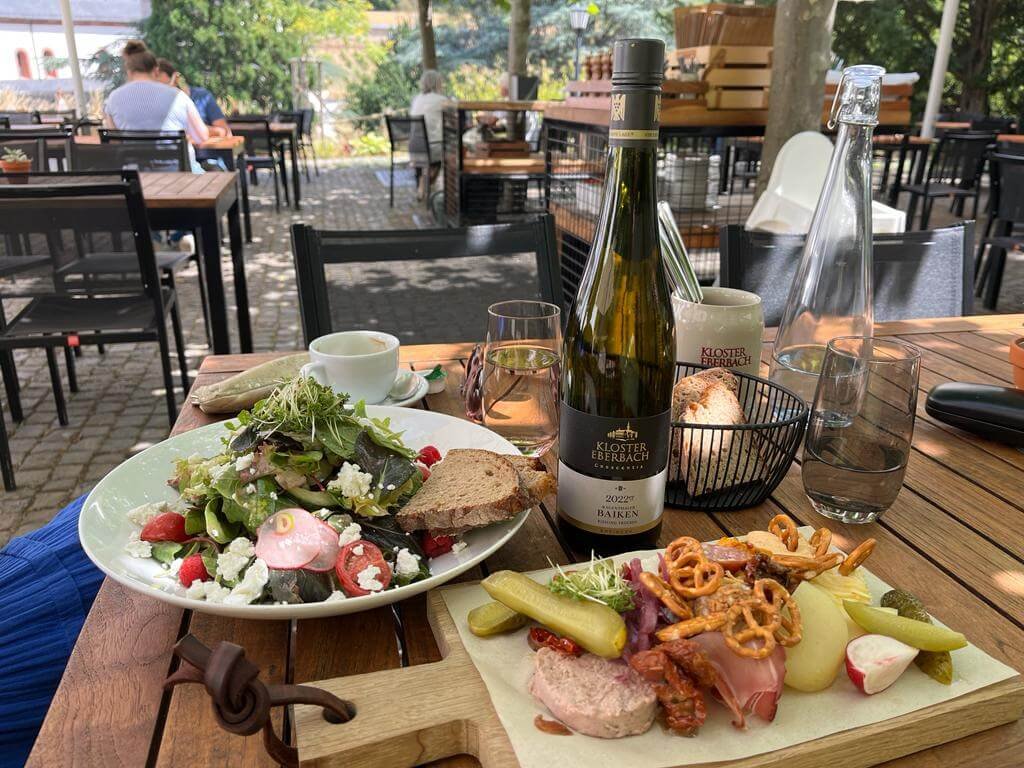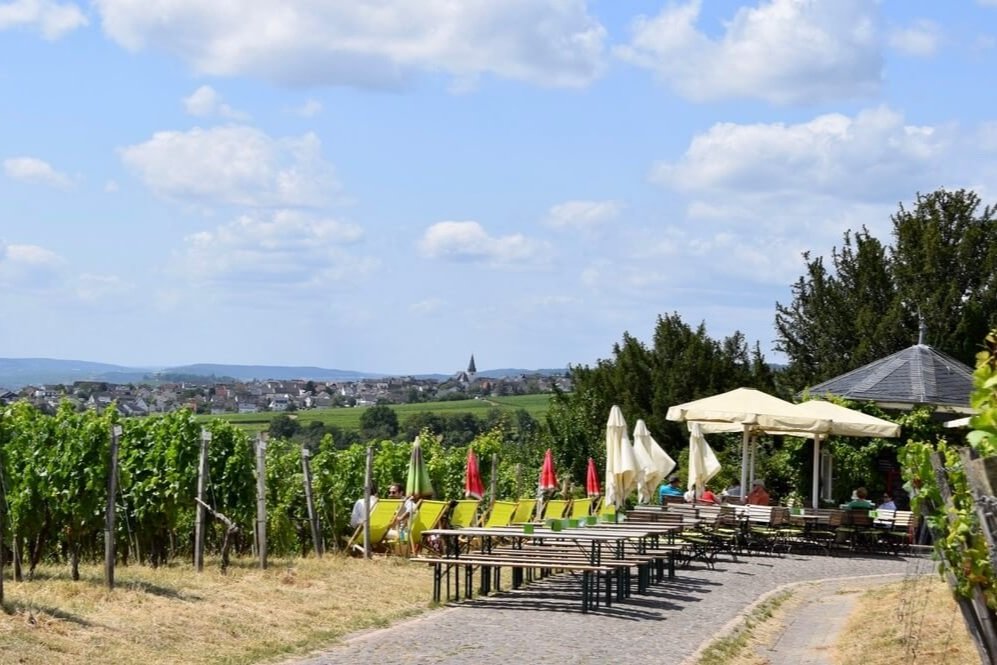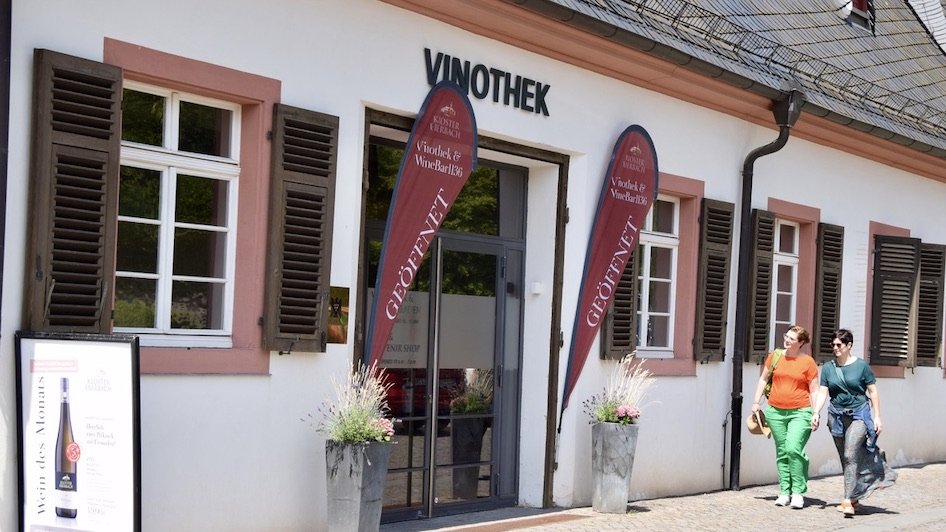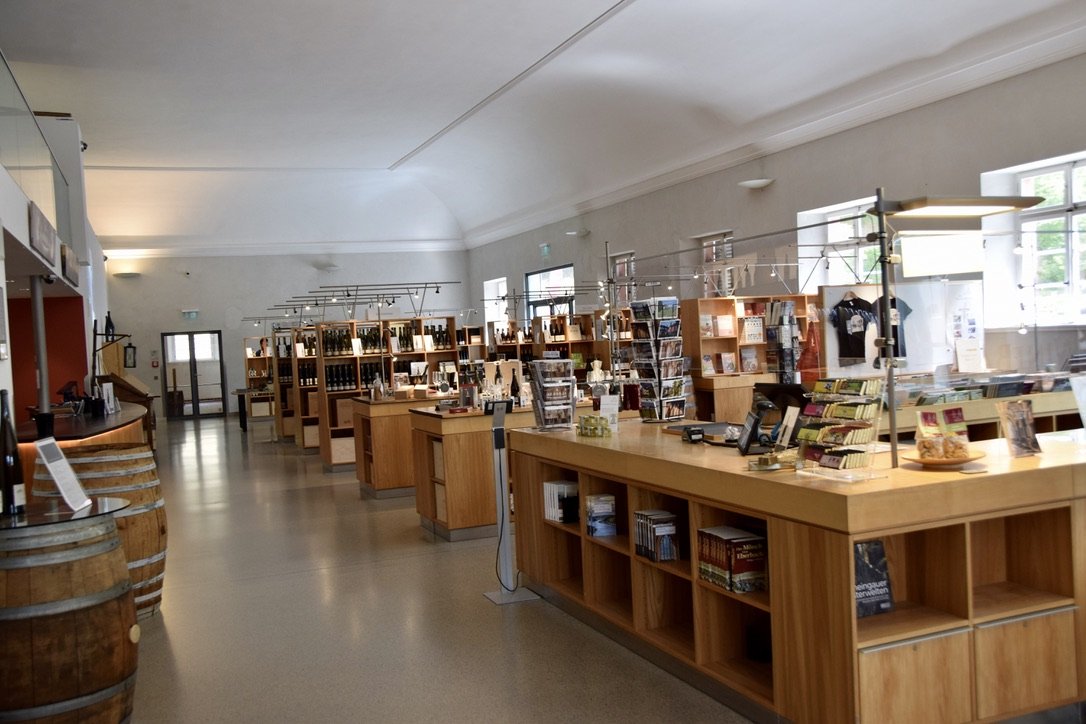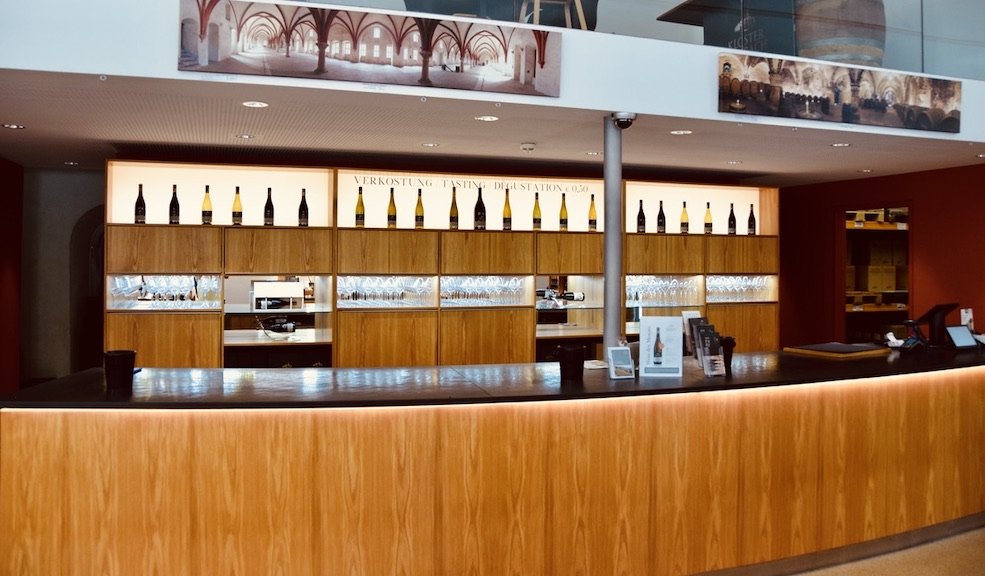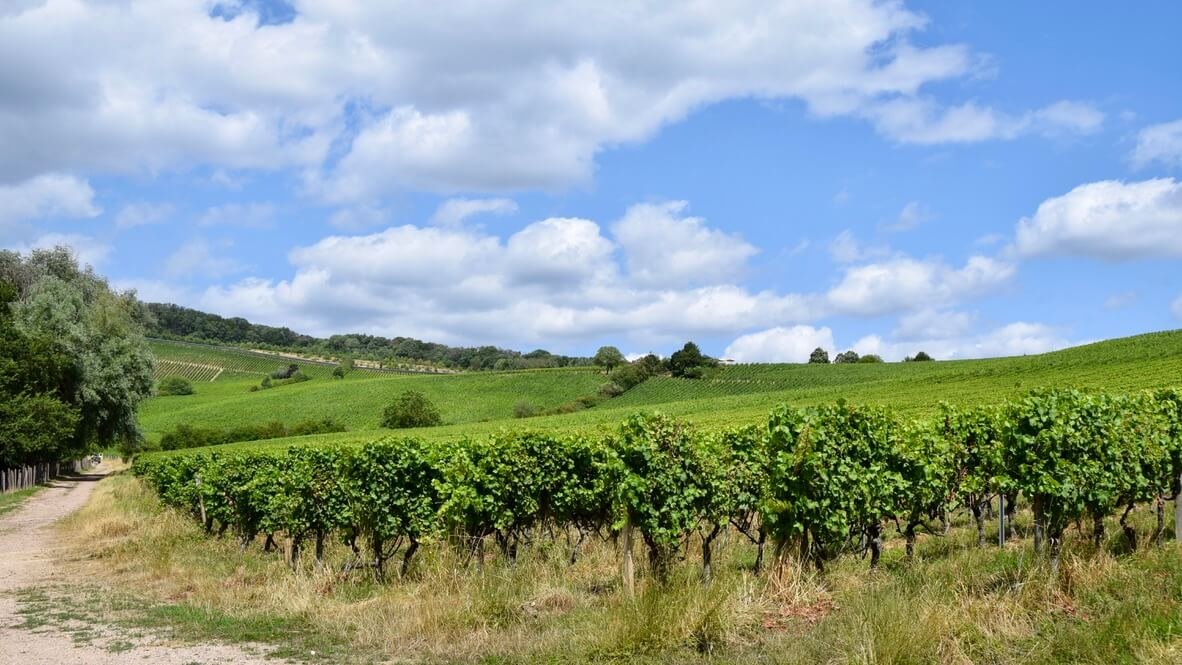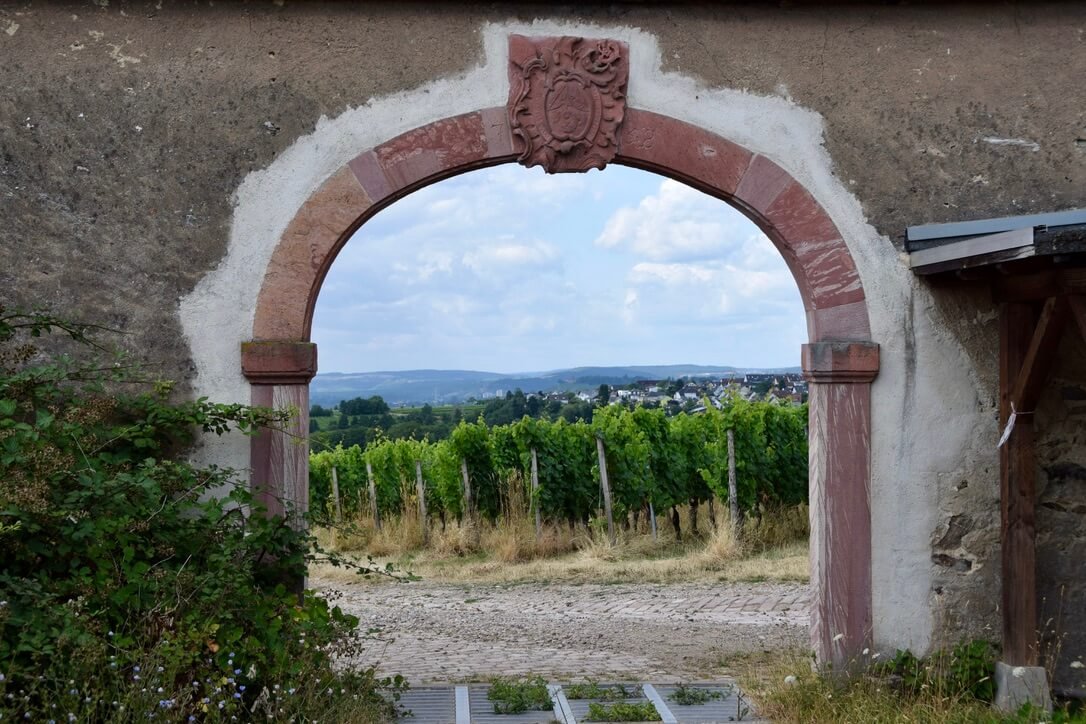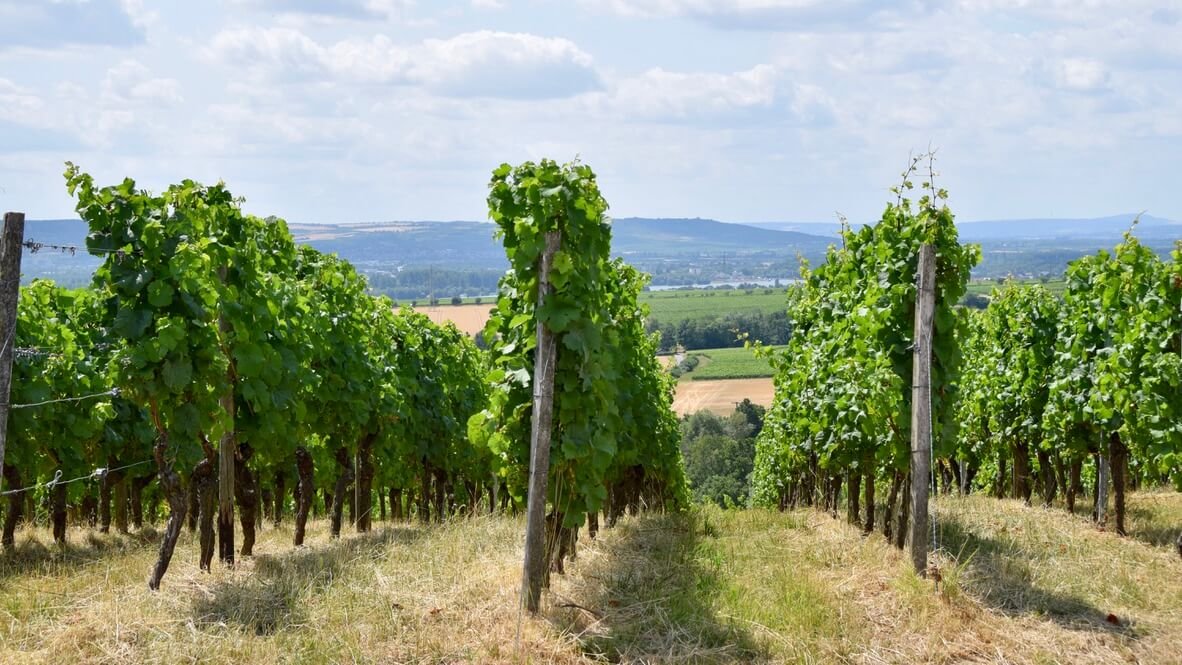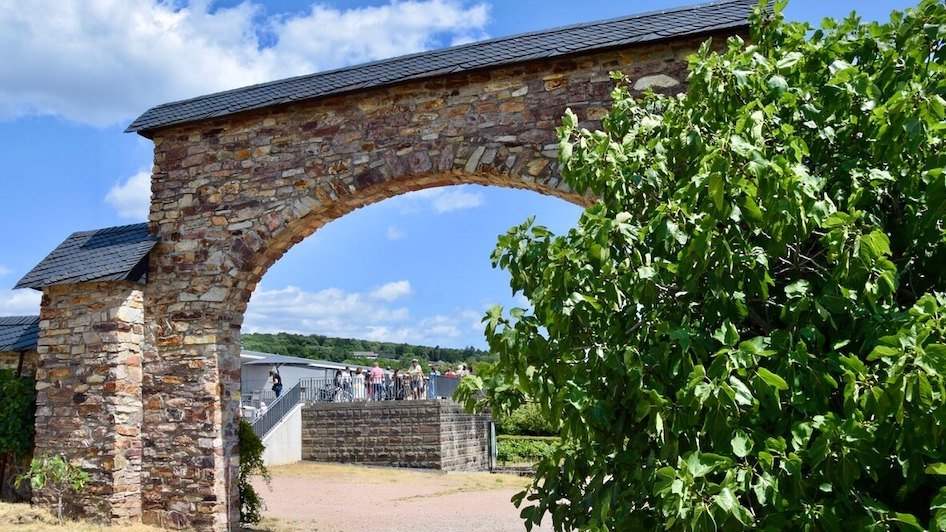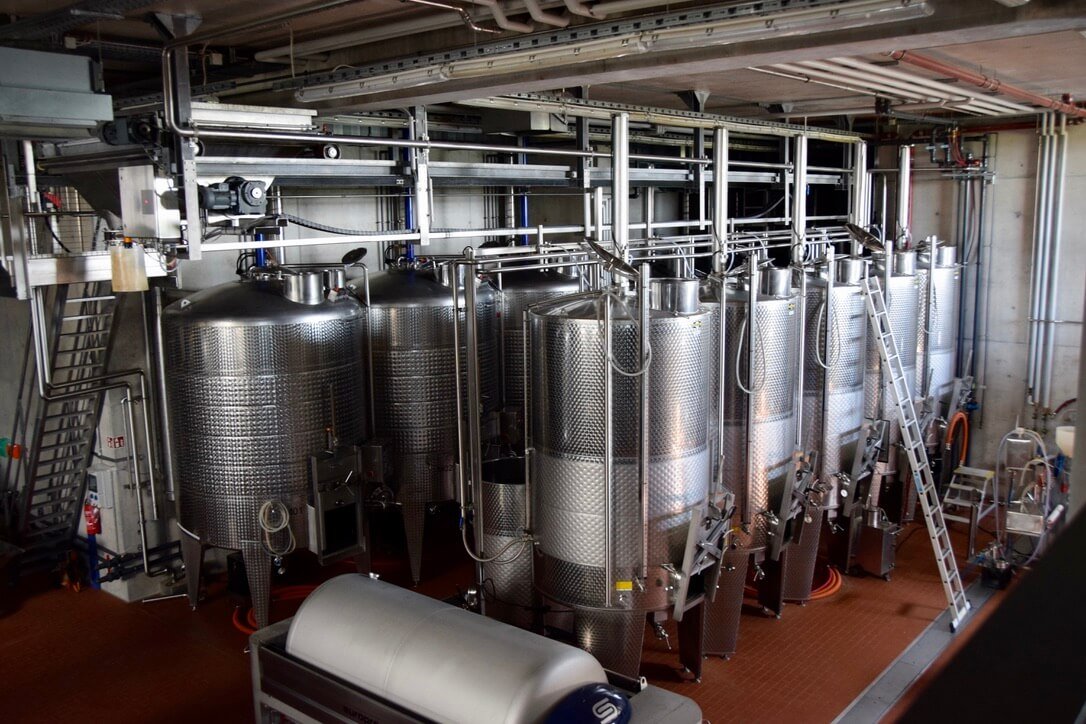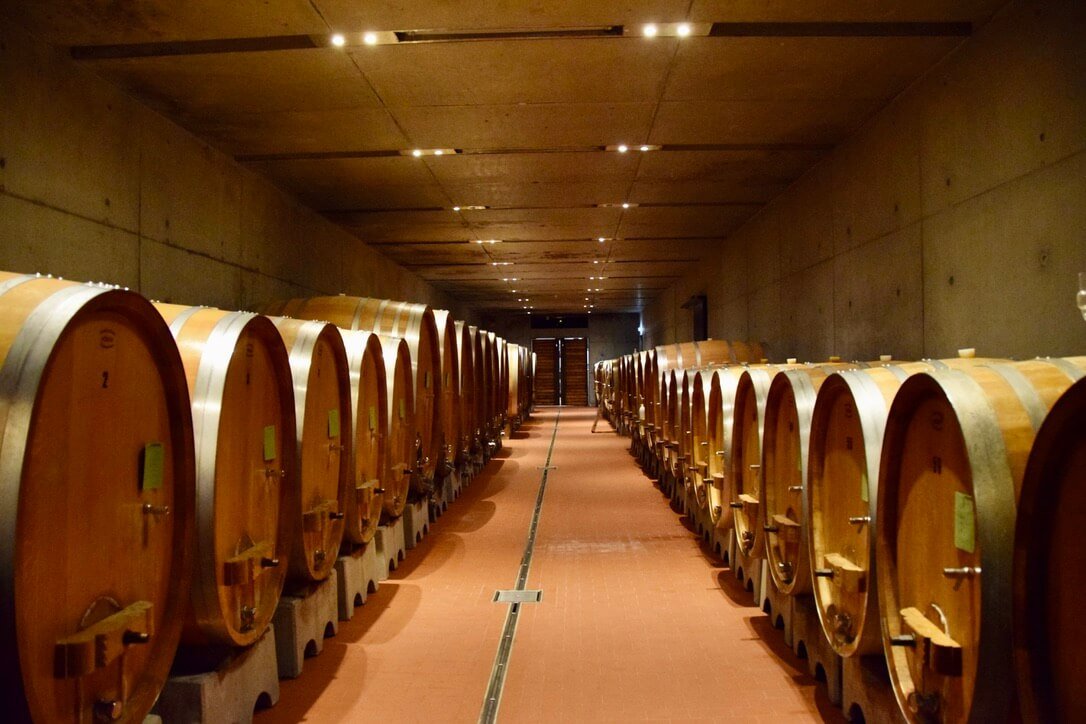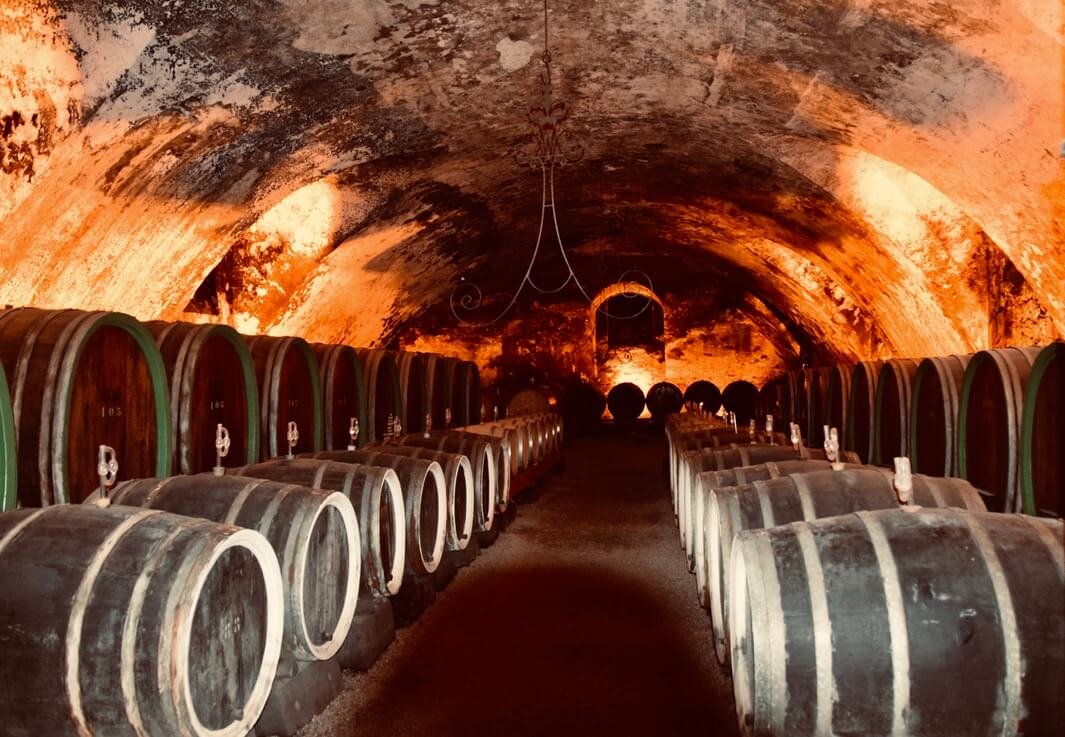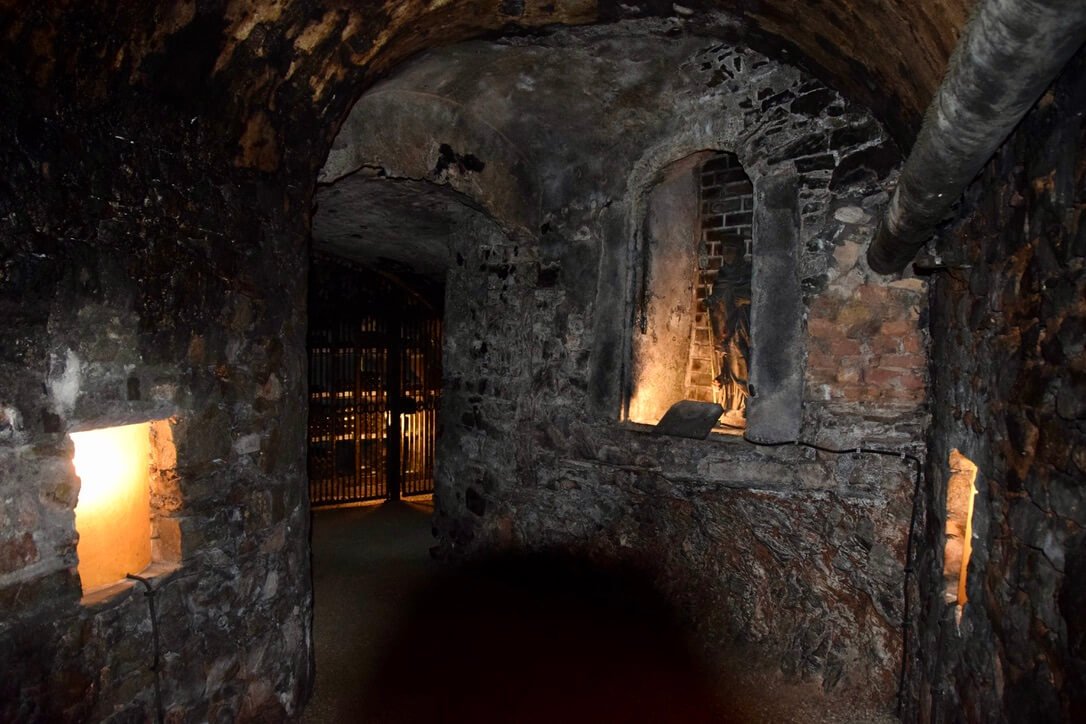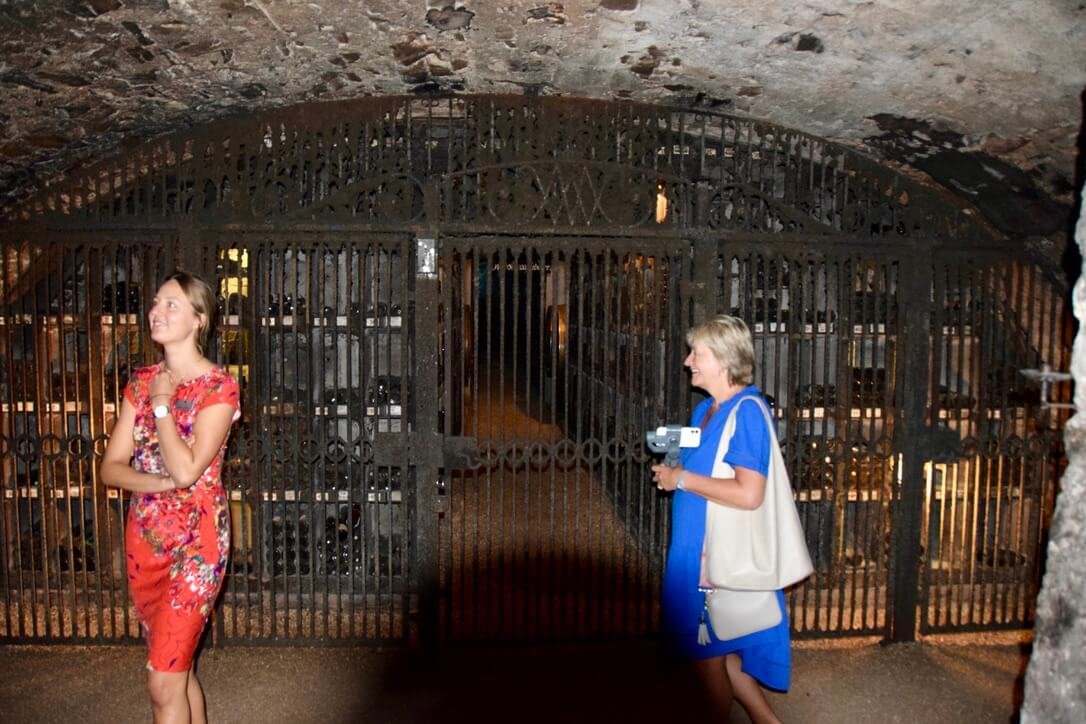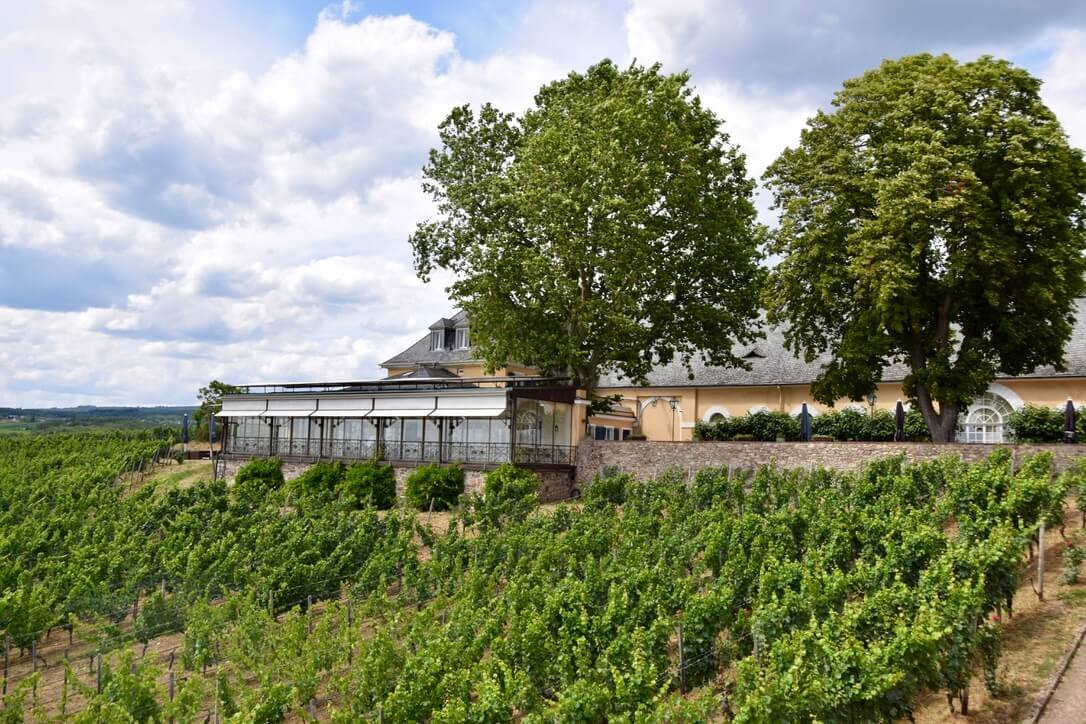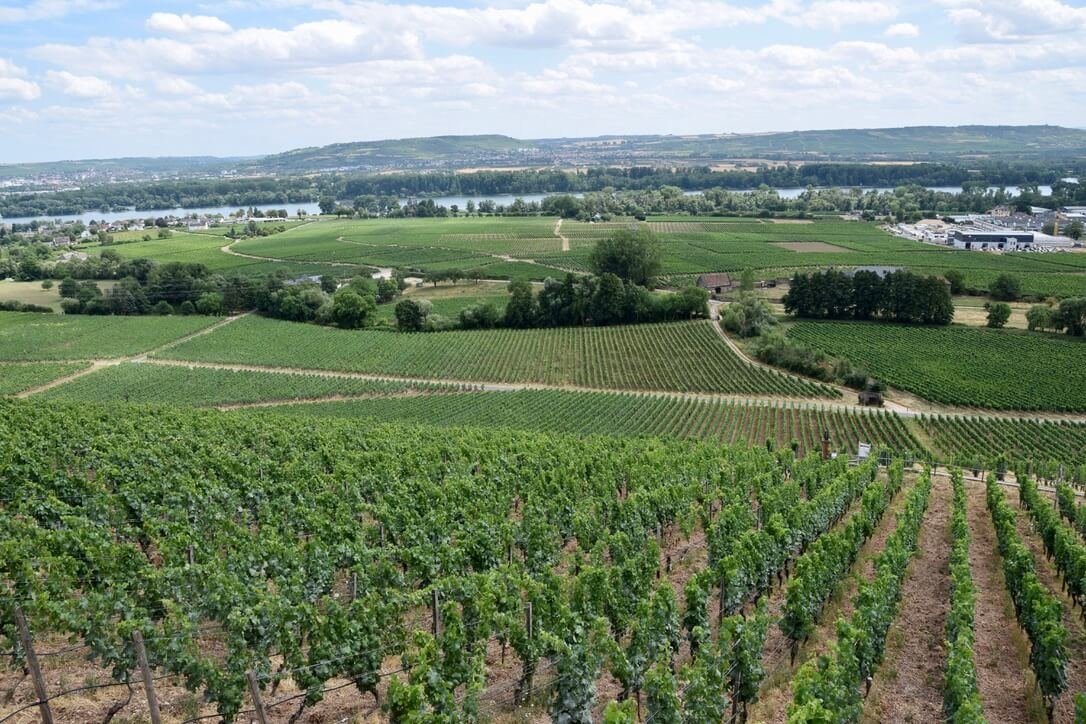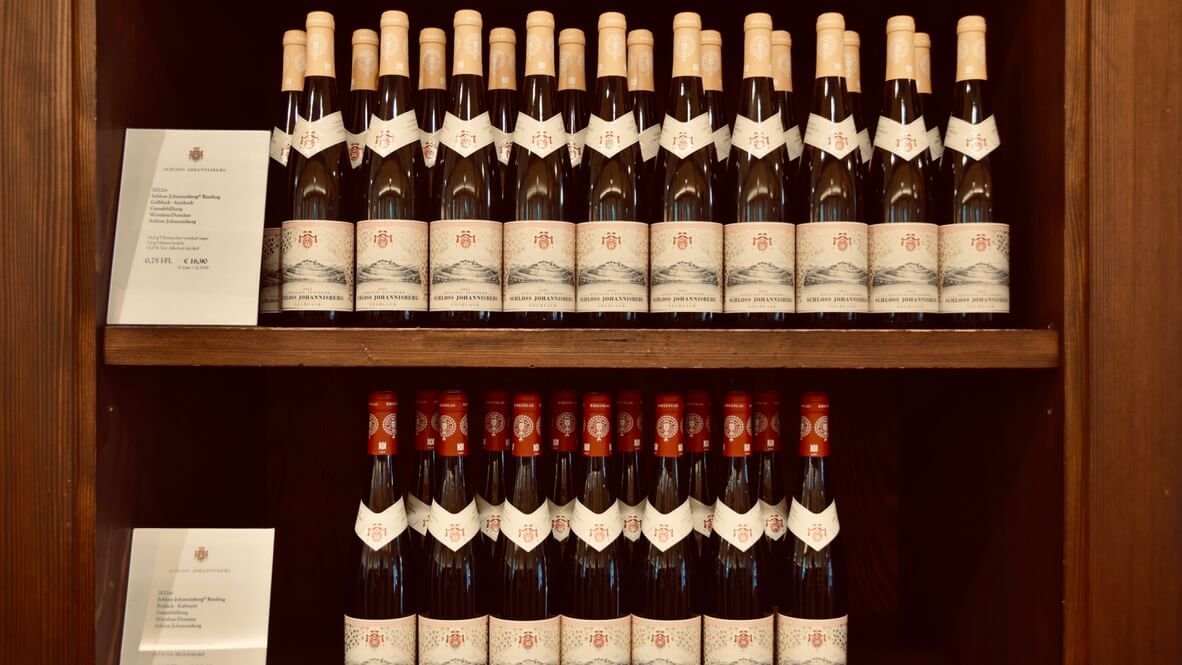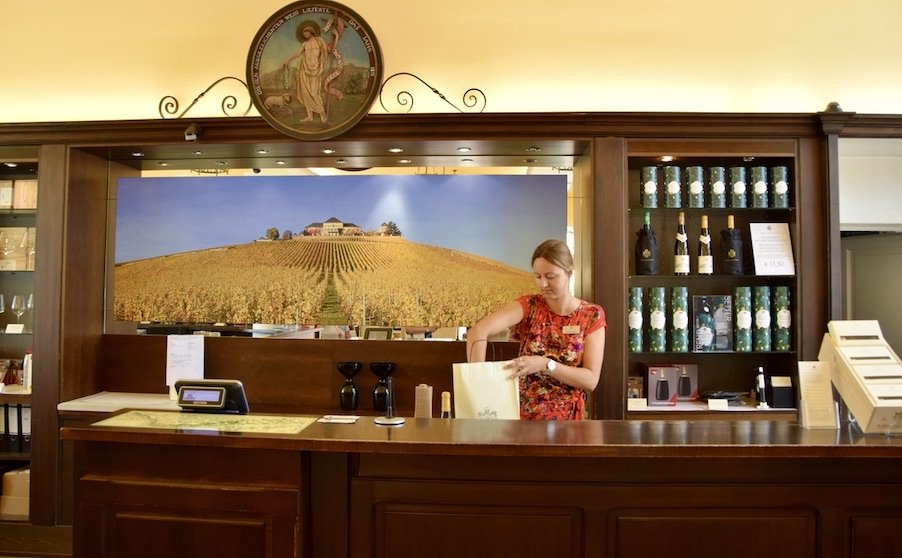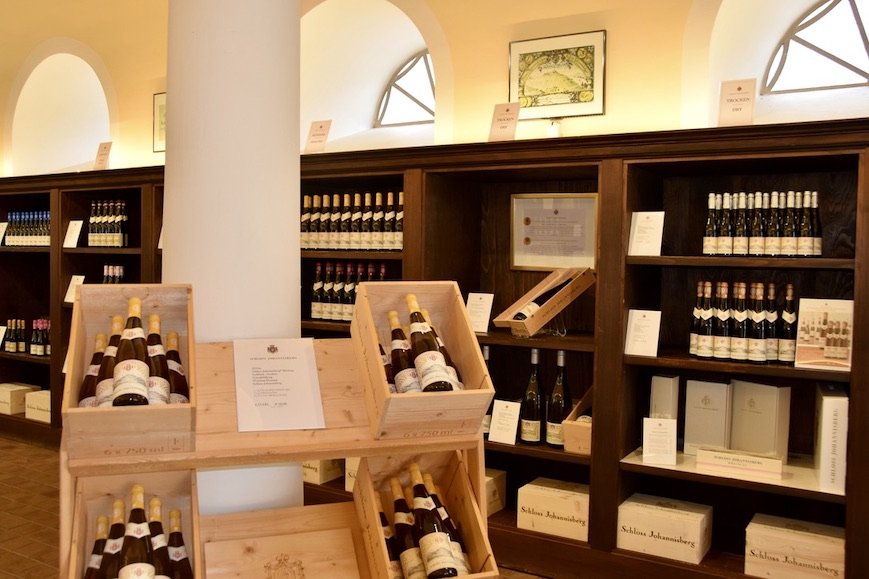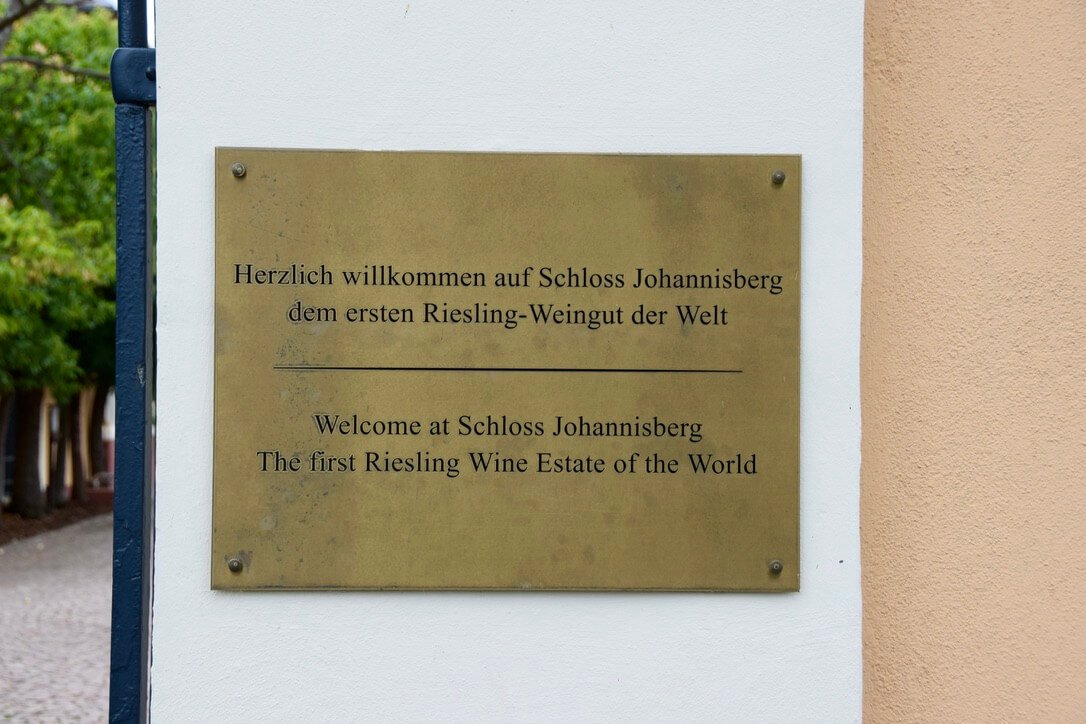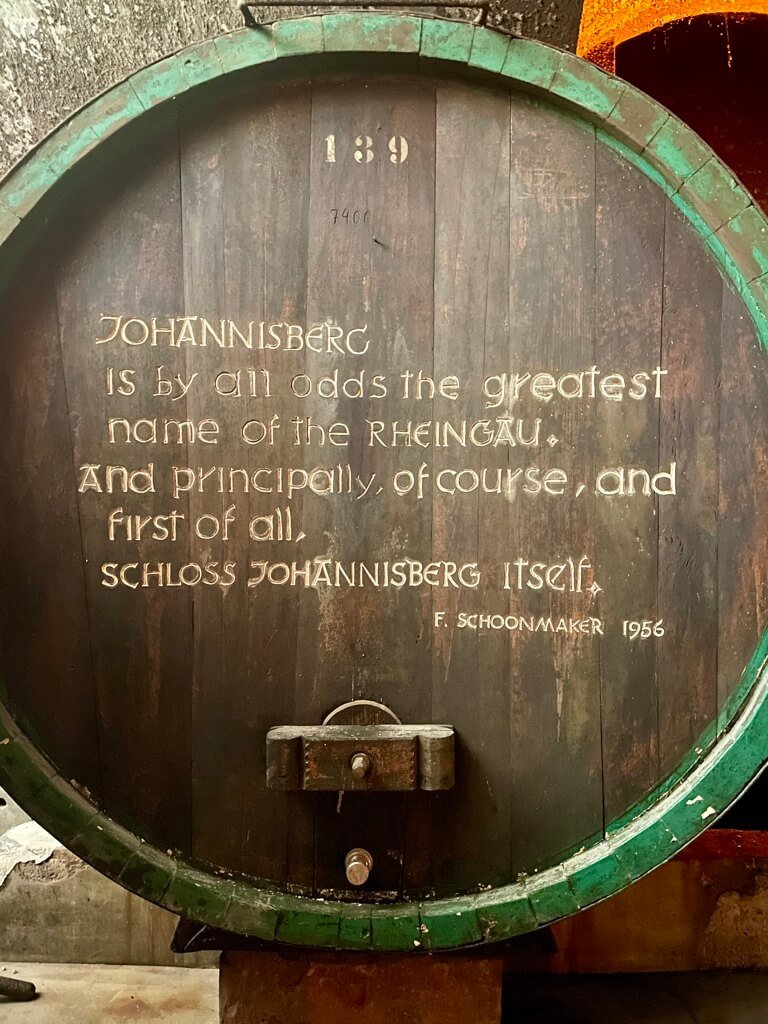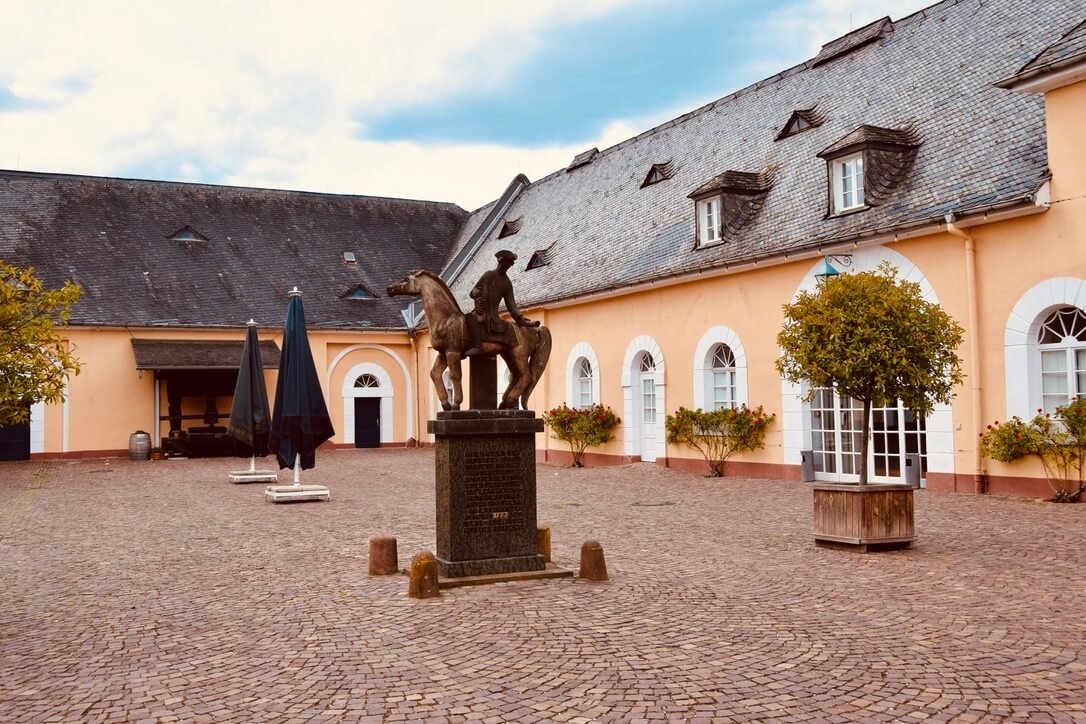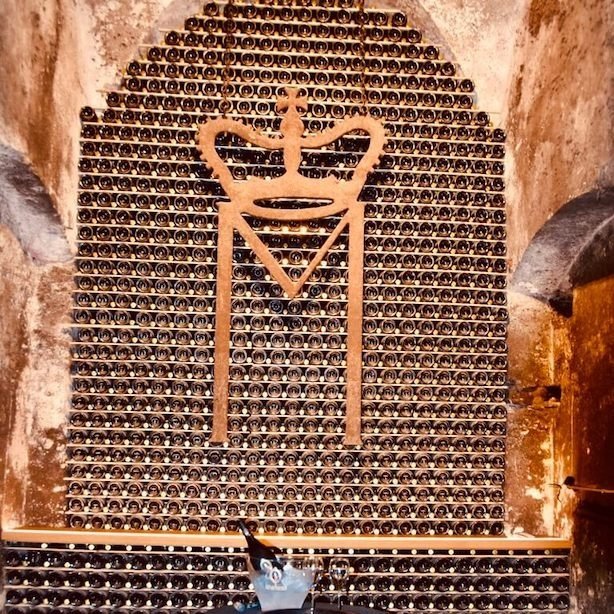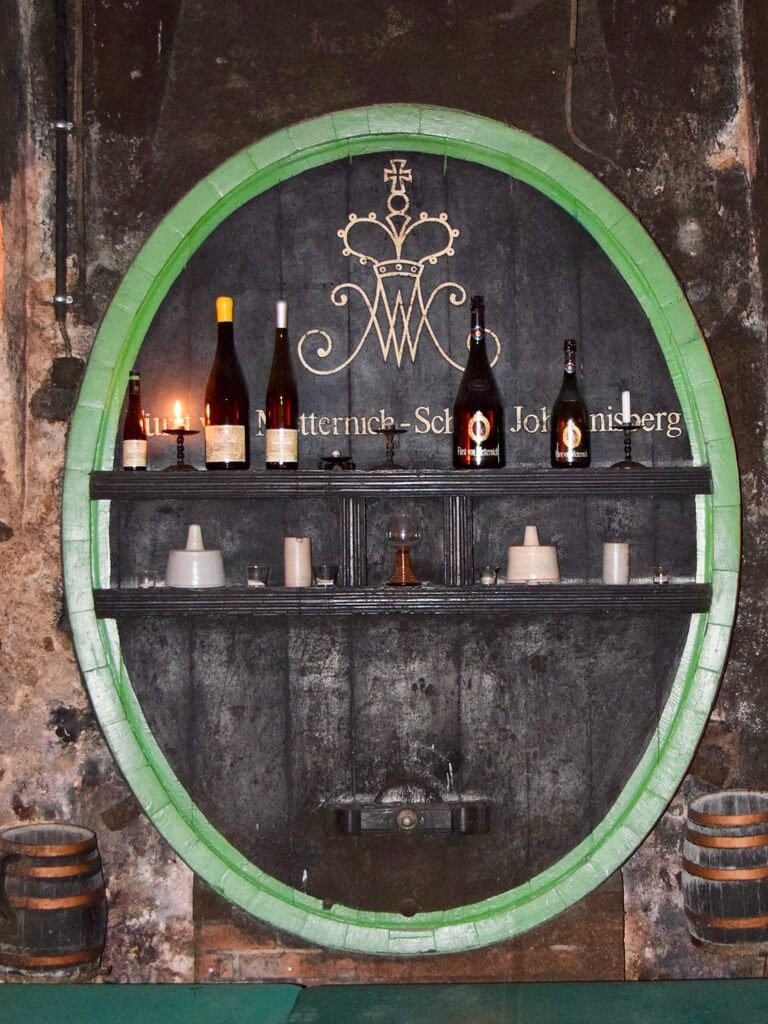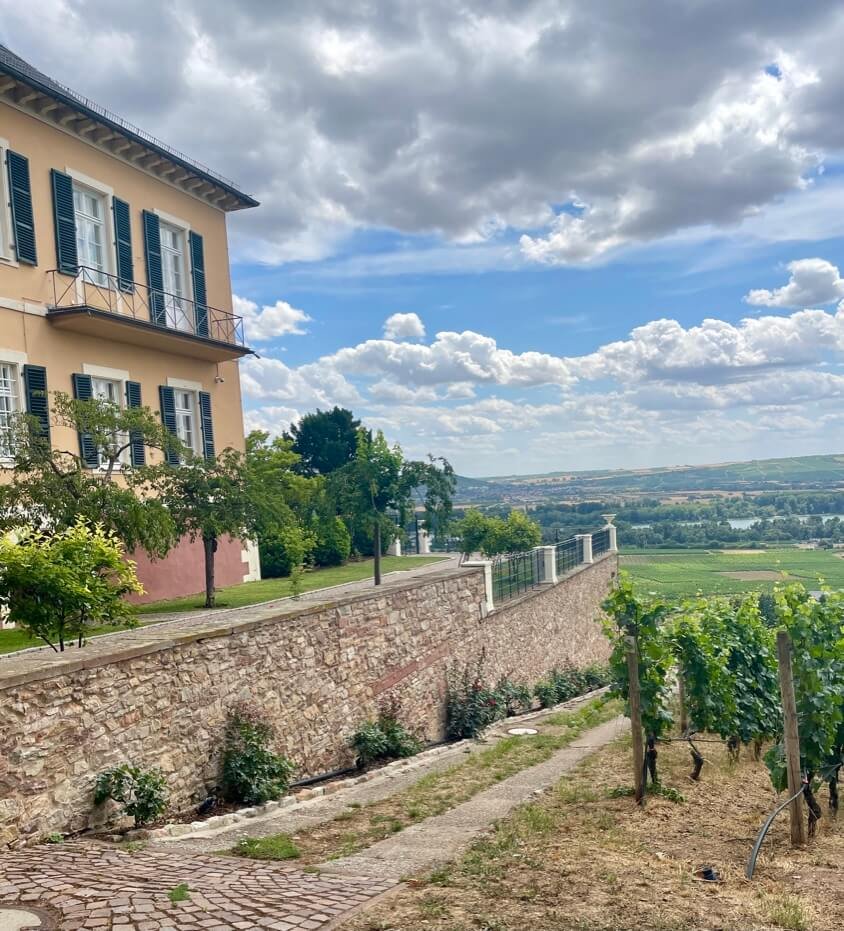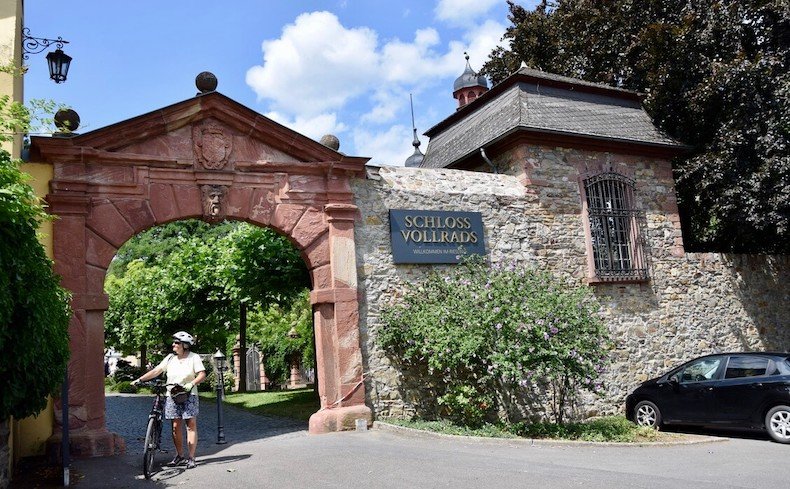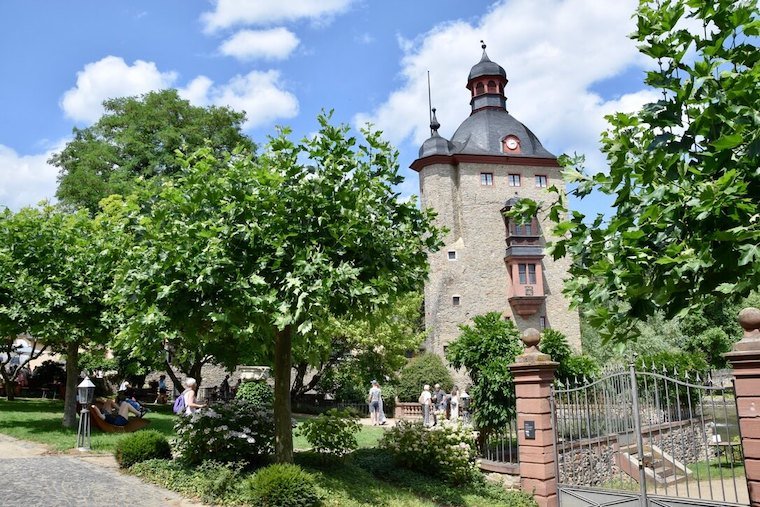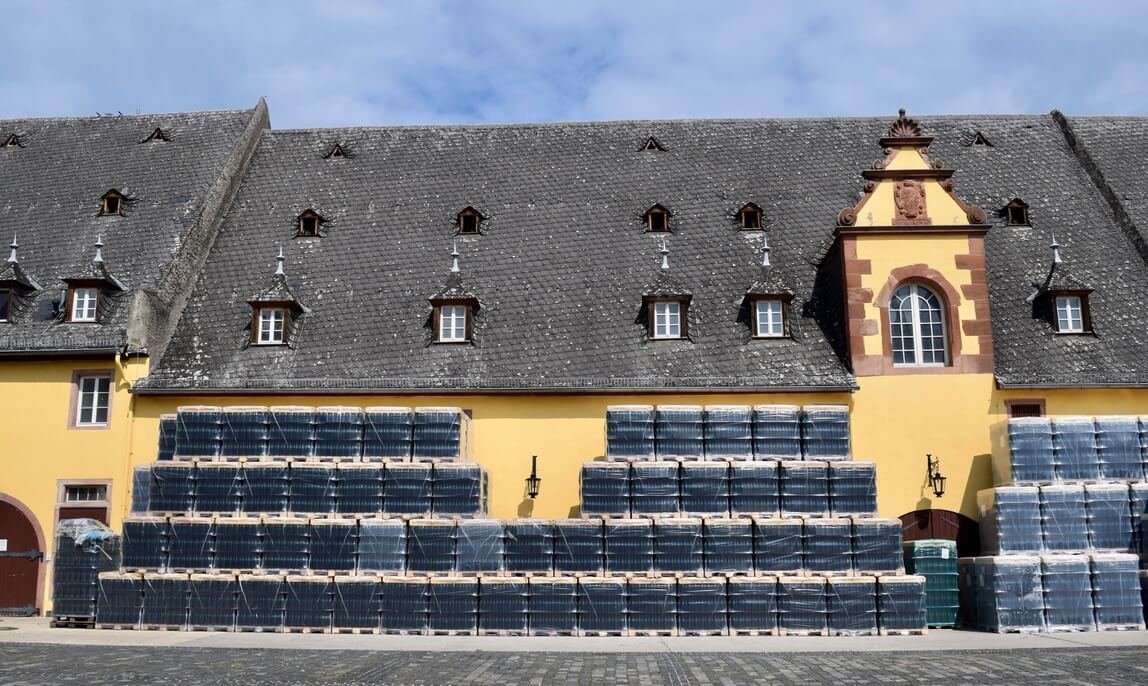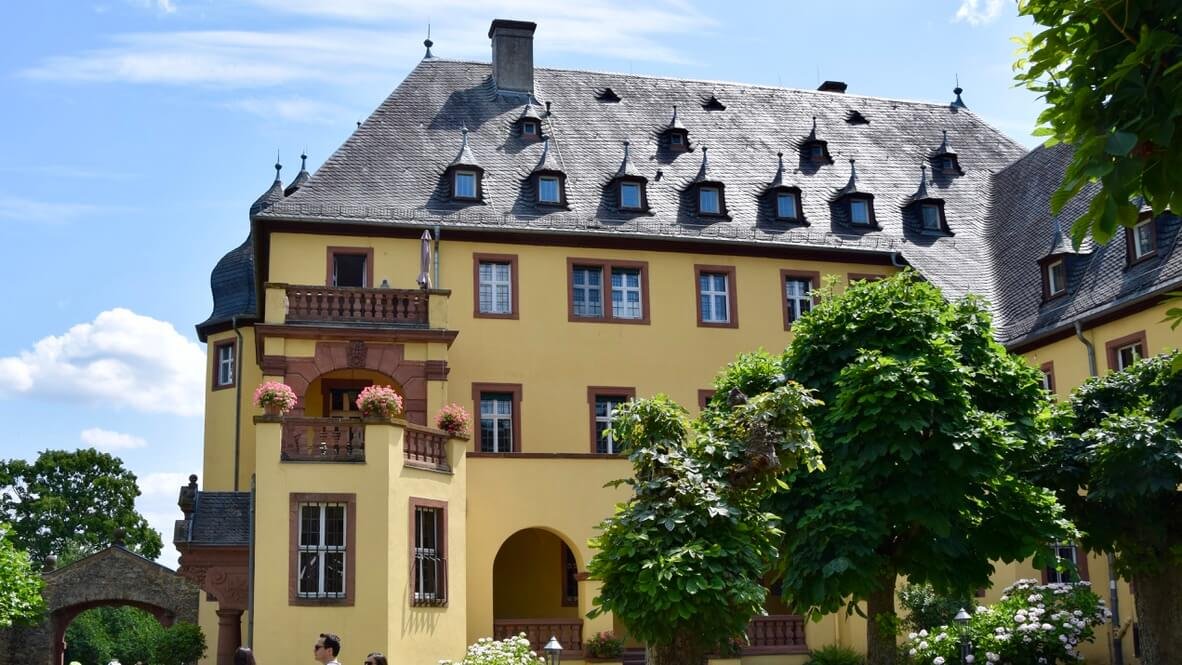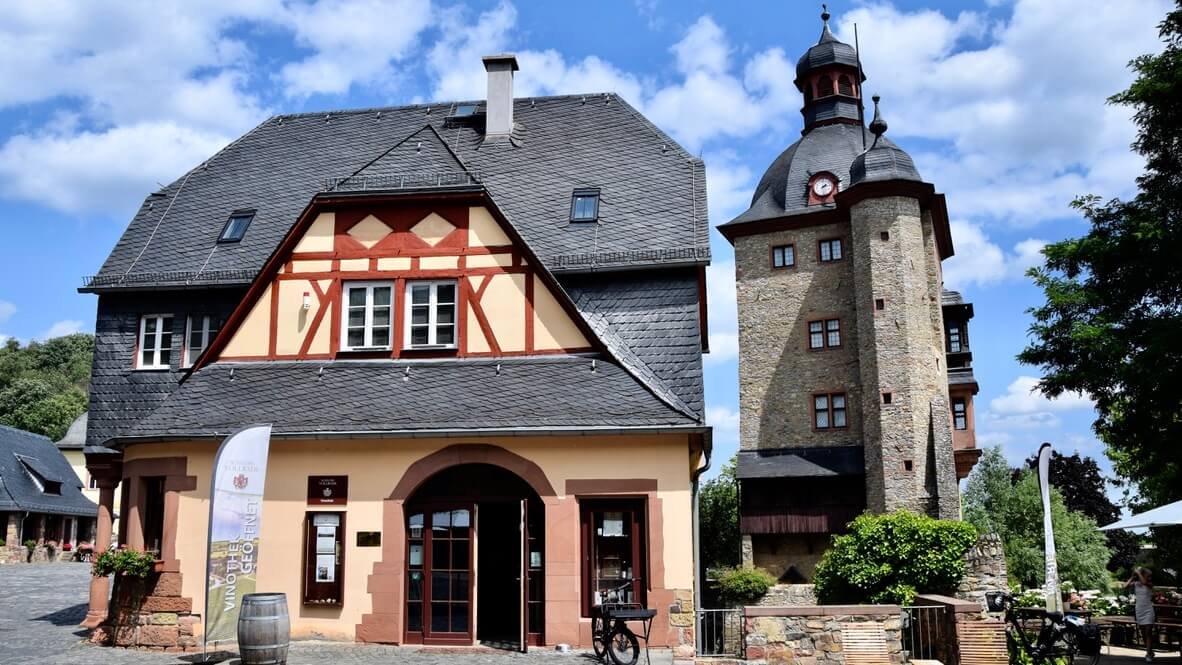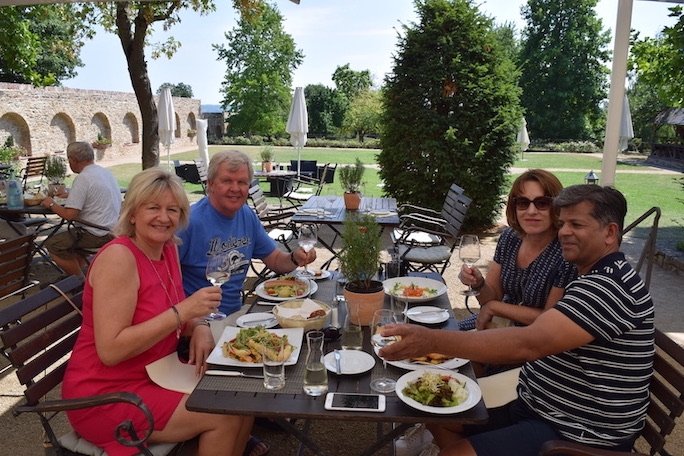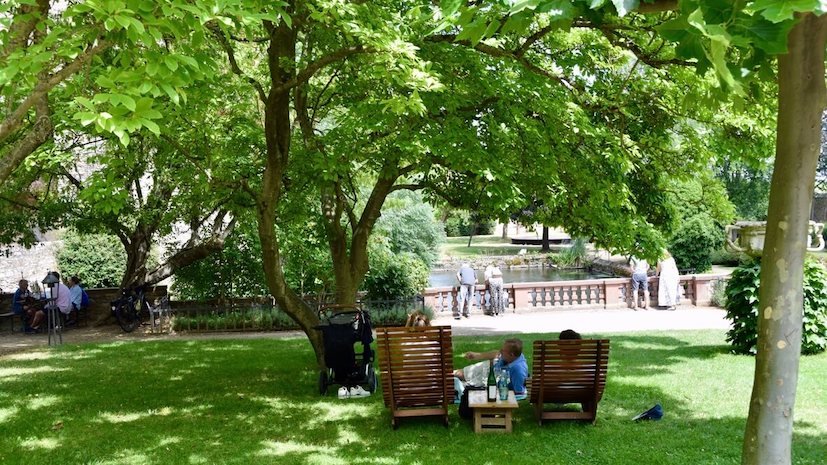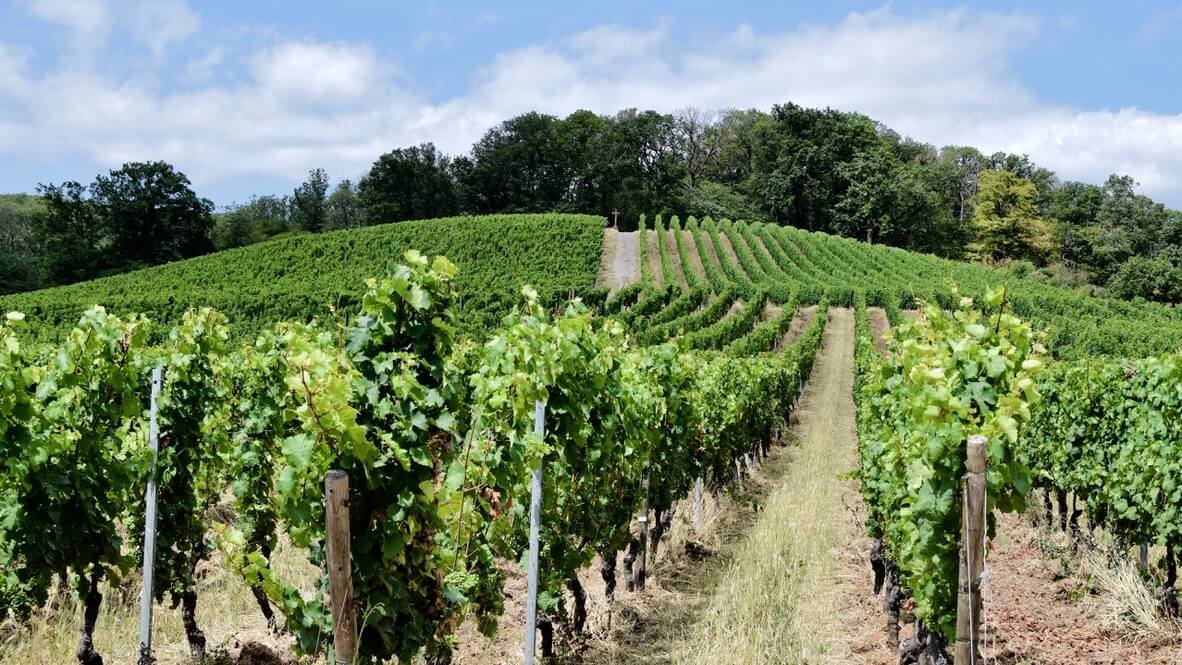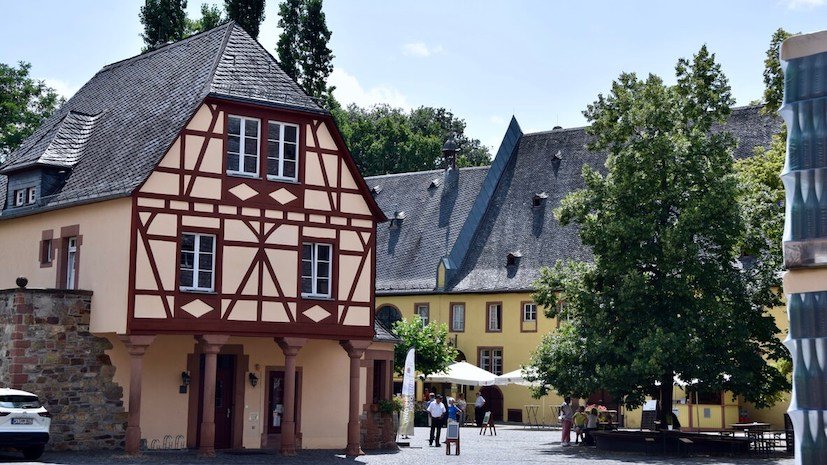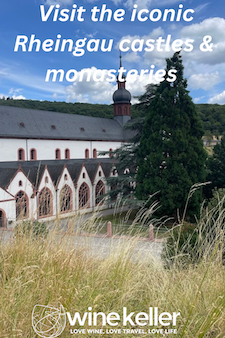Visit the iconic Rheingau castles and monasteries
German wine history was written in the Rheingau wine region - no trip here is complete without a visit to one or more of its historic castles and monasteries
Beautiful Kloster Eberbach, Rheingau, Germany - Source: Winekeller
Rheingau is the spiritual heart of German wine, rich in history and tradition and the birthplace of Germany’s most famous grape, the ‘king of grapes’, German Riesling. It’s also a very popular wine tourist region, in which old monasteries and castles are magnificently embedded in the wine landscape.
Rheingau is home to Germany's most historic vineyard - the Kloster Eberbach ‘Steinberg’ - and some of the world’s most highly-rated vineyards to visit. A ‘must-visit' for all wine lovers and wine enthusiasts, no trip to this wonderful German wine region should exclude a visit to one of its most famous, historic estates and Rheingau wineries, including: Kloster Eberbach, Schloss Johannisberg and Schloss Vollrads.
Read on to learn about these impressive Rheingau estates, their history, their wines and how to make the most of a visit, where you can enjoy a tour, a tasting, a simple glass of wine, a meal or just a wander round to soak up the history and the beautiful surroundings.
Kloster Eberbach
Kloster Eberbach, Rheingau, the emblem of German wine history - Source: Winekeller
The Rheingau wine region’s most famous monastery ‘Kloster Eberbach’ is regarded as one of the best preserved mediaeval monasteries in Europe, as well as the emblem of German wine history.
With beginnings dating back to the early 12th century and wine being produced here by the Cistercian monks from the 13th century, Kloster Eberbach has played a key role in Germany’s long wine history. Visitors from all round the world flock here each year to learn about its history and its wines, but also to see the monastery which brought the Middle Ages back to life in the world-famous Sean Connery movie, ‘The Name of the Rose’.
Kloster Eberbach is owned by the state of Hessen and the ‘Hessische Staatsweingüter’.
Kloster Eberbach provides the most unique wine tourist experience - history, unique cultural heritage, stunning scenery and exceptional quality wine.
Where to find Kloster Eberbach
Address: Kloster-Eberbach-Str. 1, 65346 Eltville am Rhein, Germany
Kloster Eberbach is located in a wooded hollow about 10 minutes drive into the hills behind the popular wine village of Hattenheim on the River Rhine.
Visiting Kloster Eberbach
You need to allow at least 2-3 hours to visit Kloster Eberbach as there’s lots you can do.
You can discover the monastery’s long history in the museum and visit the beautiful basilica, as well as the cloister - or the inner courtyard - the centre of monastic life at Kloster Eberbach.
Kloster Eberbach guided tours
There is a wide variety of guided tours of the monastery, as well as wine tastings to choose from, in the form of public tours, scheduled tours and customised tours.
Dining at Kloster Eberbach
Make time to have a drink, a snack or perhaps lunch during your visit to Kloster Eberbach - you won’t be disappointed! There are 2 dining options at the monastery: during the summer months stop for a drink and a snack at the lovely ‘Gatehouse’ bistro - or sit down for lunch in the lovely ‘Klosterschänke’ restaurant. Sit on the garden patio overlooking the basilica, or enjoy the beautiful vaulted walls in the historic restaurant in cooler weather - either way you can enjoy some wonderful regional specialities and home-cooked food. We enjoyed a lovely lunch here and would highly recommend it.
Note - there are 2 other dining options close by to the monastery: the ‘Schwarzes Häuschen’ in the famous Kloster Eberbach Steinberg vineyard (see later), or the ‘Gutsausschank Baiken’ - this is a beautiful restaurant also owned by the Hessische Staatsweingüte and located right in the heart of the ‘Baiken’ single vineyard.
Kloster Eberbach Hotel
Guest accommodation is available at the Kloster Eberbach ‘Gästehaus’, offering 22 double rooms in a building which was once a mill and barn and converted into a guest house in the 16th century. The calm design reflects the simple life of the Cistercian monks, but with all of the comfort and amenities you would expect today in a modern hotel.
Visit the Monastery shop and vinothek
Don’t leave Kloster Eberbach without taking time to visit the fabulous monastery shop, where you can browse the selection of books and gifts and the vinothek, where you can sample and buy a superb range of Kloster Eberbach wines. You can also enjoy a glass of wine in the wine bar - or alternatively a coffee!
Kloster Eberbach wines
Discover the famous Kloster Eberbach wines and specifically Kloster Eberbach Riesling. Kloster Eberbach is known for its high quality Riesling wines, but also produces a range of excellent Pinot blanc, Pinot noir and Pinot gris wines.
Over 9 centuries Kloster Eberbach has had a huge influence, not just on the Rheingau wine scene, but across Germany and the globe. The monastery houses a unique collection of ancient wines, dating back to 1706 and today Kloster Eberbach wines are known for their uncompromising quality and distinction. A famous wine auction is held here each year (dating back to 1806), offering a unique experience in stunning historical surroundings.
Weingut Kloster Eberbach produces approximately 2m bottles of wine per year and most of these are sold in Germany. There are some excellent entry-level wines, but Kloster Eberbach is known for its fine wines, including its premium ‘Crescentia’ single vineyard/erste lage wines and grand-cru/grosses gewächs wines (known as ‘GG’s!).
The current head winemaker, who has been in the role since 2018, is credited with developing and enhancing the range of Kloster Eberbach wine styles, whilst maintaining the focus on quality and fine wines.
The iconic Kloster Eberbach Steinberg vineyard
The world-famous walled ‘Steinberg’ vineyard - Source: Winekeller
Kloster Eberbach wines are produced from almost 230 hectares of vineyards - all in the Rheingau wine region apart from about 30 hectares in the Hessische Bergstrasse region.
Kloster Eberbach is most known however for its historic and iconic Steinberg vineyard, located just 900 metres away from the monastery (a marked path will take you 15 minutes to walk there from the monastery). This world-famous 32 hectare vineyard - rated as one of the world’s top vineyard sites - contains the original parcels of land planted with vines by the Cistercian monks back in the 12th century and has been in the possession of the Kloster Eberbach wine estate since 1239. The vineyard is surrounded by a single 3 km wall, built by the monks in 1208.
Kloster Eberbach winery
Located right next to the Steinberg vineyard is the impressive, state-of-the-art Kloster Eberbach winery, opened in 2008. All of the Kloster Eberbach wines are produced here.
Winery tours are offered every 2 weeks - refer to the events calendar - you need to book! We were amazed by the winery and the cellars, which are 14 metres deep.
You can also taste wines here and enjoy the spectacular views from the winery across the vineyards and down to the Rhine. During summer weekends enjoy wine and snacks in the ‘Schwarze Häuschen’ amongst the famous Steinberg vines.
There’s so much to see and do at Kloster Eberbach and in terms of history, culture and wine, it is on the world map of wine tourism destinations, even if the wines aren’t prominent on shelves outside of Germany!
Kloster Eberbach was voted no. 82 in the World’s Best Vineyards 2024.
Also see the video:
Schloss Johannisberg
The impressive Schloss Johannisberg stands proud overlooking the vineyards and the River Rhine below, dominating the Rheingau landscape, in between the wine towns of Rüdesheim and Oestrich-Winkel.
Schloss Johannisberg - Source: Winekeller
Schloss Johannisberg - Source: Winekeller
The village of Johannisberg is not only known for the castle of the same name, but also historically as the ‘birthplace of Riesling’ and the place where ‘Spätlese’ (late harvest) wines originated, back in 1755.
In addition to 1200 years of wine culture and wine history, the fact that it has been voted as No. 2 in the list of the ‘World’s Best Vineyards 2025’ should stimulate your interest in visiting!
Where to find Schloss Johannisberg
Address: 65366 Geisenheim, Germany
Schloss Johannisberg is located close to the very popular river town of Rüdesheim - in between here and the wine village of Oestrich-Winkel
Visiting Schloss Johannisberg
The spectacular Johannisberg castle is privately owned today and was originally built in 1716 on the ruins of a monastery complex - you can see part of these ruins at the side of the castle. The castle and the estate have an illustrious history, but today it is very much known as one of the finest Riesling wine estates in the world. Allow 1-2 hours for a visit (excluding lunch).
Schloss Johannisberg wine tours
You can enjoy the castle from the exterior but are unable to visit the interior, as it is privately owned. However, you can enjoy a tour around the outside of the castle to learn more about its history, as well as a tour of the historic cellars and a range of wine tastings.
All tours and tastings must be booked in advance. Wine tastings start at 29 euros pp for 3 different wines.
Schloss Johannisberg cellars:
A visit to the famous Schloss Johannisberg cellars is a must!
More than 25,000 precious wines are stored in the 900-year-old abbey cellar and the oldest Schloss Johannisberg wines date back to 1748.
The most common wine barrel around the world is made of French oak. At Schloss Johannisberg, the barrels are all made from oak sourced from the nearby 300 hectare Schloss Johannisberg forest. This oak is credited for some of the incredible character, quality and flavours of Schloss Johannisberg wines.
Schloss Johannisberg restaurant
Schloss Johannisberg is known for its lovely ‘Schlossschänke restaurant’. It offers incredible views over the Rheingau region as well as delicious food and regional specialities. Note that the restaurant is closed on Mondays. You can also enjoy a glass of wine and snacks at the ‘GoetheBlick’ bar in the middle of the vineyards - only open in the summer months Thursday-Sunday.
Visit the Schloss Johannisberg shop and vinothek
Open daily, this is a great place to visit to browse the wines and gifts and to learn more about Schloss Johannisberg.
Schloss Johannisberg Riesling
Schloss Johannisberg was the first wine estate to cultivate 100% Riesling grapes in 1720 and it has remained so ever-since. Today it is known as ‘one of the greatest Riesling terroirs on the planet wine’ (Robert Parker) and is famed for its Rheingau Riesling, especially its Rheingau Riesling Spätlese (late harvest)
Schloss Johannisberg is known throughout the world for discovering ‘late-harvest’ wines in 1775, producing noble-rot, sweet, ‘late-harvest’ wines and still today the Rheingau Riesling Spätlese (late harvest) are among the region's flagship wines.
The estate has approximately 50 hectares of vineyards on a quartzite slope which is protected by the Taunus mountain range, 182 metres above sea level, at a latitude of 50 degrees with a 45 degrees exposure to the sun, making it the perfect place to grow Riesling.
Schloss Johannisberg is a national treasure and a real slice of German, European and global wine history. If you like Riesling wines, then this does need to be on your list!
Also see the video:
Schloss Vollrads
Another magnificent castle and wine estate - Schloss Vollrads - located close to Schloss Johannisberg and boasting some 800 years of wine history.
Schloss Vollrads, Rheingau, Germany - Source: Winekeller
The estate was family-owned until the tragic death in 1997 of Erwein Count Matuschka-Greiffenclau. The Schloss and winery were taken over in 1999 by the Nassauische Sparkasse (banking group), which continues to run them today.
Weingut Schloss Vollrads isn’t merely a winery, it’s a cultural monument and an art-historical gem of the Rheingau region. It is one of the oldest wineries in Germany and is known for its exceptional Riesling wines. The first wines were sold here in 1211, when members of the Greiffenclau family sold wine to the St. Viktor monastery in Mainz.
Where to find Schloss Vollrads
Address: Schloss Vollrads 1, 65375 Oestrich-Winkel, Germany
Schloss Vollrads is located just north of the wine village, Oestrich-Winkel.
Visiting Schloss Vollrads
Today Schloss Vollrads is a modern winery and visitors are welcomed to experience the wines and the workings of a modern wine estate, as well as to appreciate its unique cultural and art heritage.
The setting is beautiful, in the hills above the River Rhine and surrounded by stunning walking, hiking and cycling trails. It is also very peaceful here, despite the hustle and bustle of a modern winery!
Dominating the estate and the large courtyard is the imposing residential tower, home to the Greiffenclau for many centuries. The moated tower is estimated to have been built about 1330 and constructed on the foundations of a Roman tower fortress from the first or second century.
Allow 1-2 hours for a visit to Schloss Vollrads (excluding lunch).
Schloss Vollrads events
Schloss Vollrads organises a range of events throughout the year, including wine tastings and ‘Wine & Dine’ evenings to concerts, readings and open-air cinema in the courtyard, as well as highlights of the world-famous Rheingau-Musik-Festival (Rheingau Music Festival).
Schloss Vollrads wine tastings:
Schloss Vollrads offers a variety of formal wine tastings where you can sample the range of Riesling wines, also with dining options. You can also get to see inside the formal castle rooms, which are not normally available to see and see features such as the leather wall coverings from the 17th century, in a room of art-historical significance, whose walls are covered in luxurious golden leather wallpaper. See here for more information.
Visit the Schloss Vollrads vinothek
Spending time in the converted coach house - or ‘Kutscher’ - is central to a visit to Schloss Vollrads. This is now home to the wine shop - or vinotek - where you can browse and sample the large range of Reisling wines.
Enjoy lunch at Schloss Vollrads
We can highly recommend the ‘Gutsrestaurant’ at Schloss Vollrads. Depending on the time of year and the weather you can enjoy a fabulous lunch (and of course a glass of Schloss Vollrads Riesling!), either in the Kavalierhaus (squire’s house), in the orangery or on the garden patio. The setting is beautiful - it really is a great place to rest a while and to appreciate some great food and wine.
Schloss Vollrads wine
Schloss Vollrads Riesling comes from some 80 hectares of vineyards, located around the Schloss and descending down to the Rhine in a southerly direction - making it a perfect location for growing Riesling.
Schloss Vollrads produce a range of some 10-15 wines, in all categories and including sparkling wine (sekt) and special sweet wines, including eiswein.
Schloss Vollrads is another key German wine tourist destination, especially if you’re a Riesling lover!
Schloss Vollrads was voted no. 83 in the World’s Best Vineyards 2024.
Planning your Rheingau wine tour
Hopefully we have given you lots of suggestions and inspiration for planning your own wine tour of Germany’s Rheingau. See here for more background information to visiting Germany’s Rheingau!
However - If you prefer the convenience of a guided tour, we are delighted to recommend German regional boutique wine tour operator ‘BottleStops’ , who runs a great one day tour called ‘Castles & Abbeys - a visit of Rheingau Vineyards’.
Contact Bottlestops to find out more!
Conclusion - our personal highlights
We love the Rheingau and all 3 of these iconic wine estates typify the region’s elegance, history, wine culture and of course German Riesling! They are all quite different and offer something unique so it’s hard to find a favourite, or a highlight and they all have the wow factor, including an incredible setting and views. My favourite view is probably from Schloss Johannisberg and the old cellar here is truly incredible - but the state-of-the-art nature of the new winery at Kloster Eberbach is equally impressive! Try and visit all 3 if you can is our advice!

